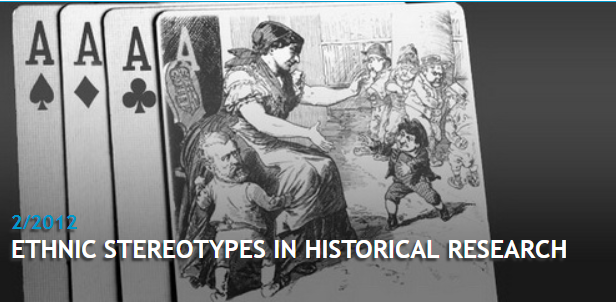„...kde Maďarka, tam hnev; kde Nemkyňa, tam faleš; kde Cigánka, tam krádež“1 Utváranie stereotypov o „iných“ v slovenskej cestopisnej a národopisnej literatúre 19. storočia
“Where there is a Hungarian woman there is anger; where there is a German woman there is falseness; where there is a Gypsy woman there is theft…”: Creating Stereotypes of “Others” in Slovak Travel and Ethnographic Literature of the 19th Century
Author(s): Rastislav MoldaSubject(s): Anthropology, Gender Studies, Ethnohistory, Slovak Literature, 19th Century
Published by: Historický ústav SAV
Keywords: stereotype; travel and ethnographic literature; Hungarians; Jews; Germans;
Summary/Abstract: The aim of the study is the analysis of the stereotypes of Hungarians, Jews, Germans and Romanies that are portrayed in the Slovak literature of the 19th century. The primary sources of the text analysis are travel and ethnographic works published as separate titles as well as the articles issued in the periodical press. Some of the mentioned literary pieces were due to limited publishing and financial possibilities published only in student's manuscript magazines and humorous magazines. Making stereotypes springs from an ambivalent relationship when there is the differentiation between "we" and "the others". Slovak authors used ironic, negative and even pejorative words when describing "the other" nationalities, whereas, they offered a positive self-portrayal when representing Slovaks. The goal of this study is to provide the record of the creation and usage of ethnic stereotypes in its complexity and in its context of the genesis of Slovak auto- and hetero-stereotypes about Hungarian nationalities in Slovak intellectual discussion. In this analysis of the stereotypes their functionality, frequency in various social environments as well as the media in which they occurred are stressed. Attention is paid to Slovak authors' expressions used in the depiction of "the others". The study is devoted to the stereotypes with the emphasis on particular situations in which they were formed. Moreover, this work points out reciprocal influence of the stereotypes and their importance. The extent of the study does not allow analyzing all the Slovak hetero-stereotypes mentioned in these literary genres. Therefore only the selection from the hetero-stereotype catalogue will be presented. According to this election Hungarians are presented as "a lazy and indolent nation", Germans as a "greedy and self-conceited" nation, Jews are stereotypically perceived as innkeepers and the stereotypes about Romanies are simply negative.
Journal: Forum Historiae. Časopis a portál pre históriu a príbuzné spoločenské vedy
- Issue Year: 6/2012
- Issue No: 2
- Page Range: 147-164
- Page Count: 18
- Language: Slovak

